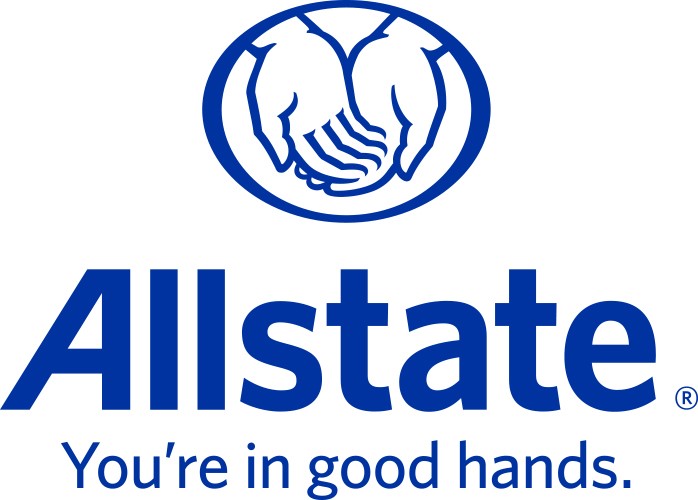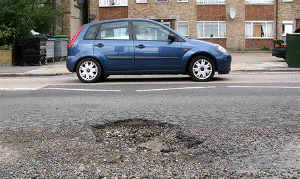Allstate Announces Estimated Third Quarter 2022 Results

NORTHBROOK, Ill., October 19, 2022 – The Allstate Corporation (NYSE: ALL) today announced estimated results for the third quarter of 2022 of a net loss between $675 million and $725 million and adjusted net loss* estimated between $400 million and $450 million.
Property-Liability Premiums
Premiums written increased 9.8% from Q3 2021 to $12.0 billion due to higher average auto and home insurance premiums and policies in force growth of 1.7%.Auto premiums written increased 9.6% to $7.9 billion and premiums earned increased 9.2% to $7.5 billion, reflecting a 10.4% increase in Allstate brand average premiums and a 1.9% increase in total auto policies in force from the prior year.Allstate continued to implement significant auto insurance rate actions in the second half of 2022 in response to inflationary increases to loss costs. Our implemented auto rate exhibit has been posted on allstateinvestors.com.During the month of September, Allstate brand implemented auto insurance rate increases of 16.2% across 8 locations, resulting in total Allstate brand insurance premium impact of 0.9%.Rate increases resulting in total Allstate brand auto insurance premium impact of 10.8% have been implemented since the beginning of the year generating increases of $2.6 billion year-to-date, of which $1.1 billion was in the third quarter.Homeowners premiums written increased 9.4% to $3.3 billion and premiums earned increased 10.1% to $2.8 billion reflecting a 13.3% increase in Allstate brand average premiums due to inflation in insured home valuations and rate increases, and a 1.4% increase in total homeowners policies in force from the prior year.
Property-Liability Underwriting Results
Property-Liability insurance loss costs continued to increase in both bodily injury and physical damage coverages. As a result, the estimated cost to settle claims was increased resulting in increases in both current and prior year reserves.Unfavorable prior year reserve reestimates, excluding catastrophes, totaled $875 million for the third quarter:Personal auto insurance adverse prior year reserve reestimates totaled $643 million, primarily from bodily injury coverages. This reflects updated assumptions related to medical inflation, increased accident severity, more complex medical treatment and greater attorney representation.Run-off property-liability adverse prior year reserve reestimates totaled $120 million, which included the results from our annual reserve review related to environmental and asbestos exposures.All other non-catastrophe prior year reserve reestimates totaled $112 million, primarily driven by commercial auto insurance and personal homeowners insurance increases.Allstate brand auto insurance current report year incurred severity on injury and physical damage coverages were increased relative to 2021 reflecting ongoing cost pressure. The increase to 2022 first and second quarter costs are estimated to represent 2.6 points of the third quarter recorded and underlying combined ratios.Allstate brand homeowners insurance current report year incurred severity coverages were increased relative to 2021 primarily as a result of increasing labor and materials costs and time to repair. The increase to 2022 first and second quarter costs are estimated to represent 2.4 points of the third quarter recorded and underlying combined ratios.
Catastrophe Losses
Catastrophe losses for the third quarter, net of reinsurance, are estimated to be $763 million, pre-tax.Estimated catastrophe losses, net of reinsurance, for the month of September were $440 million, or $348 million after-tax, with approximately 80% of losses related to Hurricane Ian.Estimated gross catastrophe losses due to Hurricane Ian, excluding National Flood Insurance Program losses, totaled $671 million pre-tax, which will be reduced by $305 million in anticipated reinsurance recoveries, for a net estimated loss of $366 million.Homeowners policies exclude coverage for losses caused by flood but generally provide for coverage for physical damage caused by wind or wind-driven rain. Auto policyholders generally have coverage for physical damage due to flood if they have purchased optional auto comprehensive coverage.Enterprise risk and return management actions and comprehensive reinsurance programs, including our stand-alone Florida property coverage with a $40 million retention, significantly mitigated net losses from Hurricane Ian. Given these actions, and 2.6% personal property market share in Florida, approximately 25% of net estimated losses relate to property lines and 75% to auto coverages. The total impact from the catastrophe losses on the auto insurance combined ratio was 4.4 points in the third quarter of 2022.For further information, refer to our 2022 reinsurance update posted on www.allstateinvestors.com.
Estimated third quarter recorded and underlying combined ratios*:
Three months ended September 30, 2022
Combined ratioUnderlying combined ratio*Property-Liability111.696.4Allstate Protection – auto insurance117.4104.0Allstate Protection – homeowners insurance91.274.6
Investment Results
Net investment income in the third quarter of 2022 is estimated at $690 million, including performance-based investment income estimated at $335 million. Three individual investments generated approximately 97% of the performance-based investment income in the third quarter.Net losses on investments and derivatives for the third quarter of 2022 are estimated to be $167 million, primarily due to lower valuation on equity investments and losses on sales of fixed income securities, which is partially offset by a valuation and settlement of derivative gain of $299 million for the third quarter of 2022. The derivative gains were primarily from interest rate futures used as part of the duration reduction strategy.Total return on the $61.0 billion portfolio was (0.8)% in Q3 2022 and (6.4)% for the nine months ended September 30, 2022, reflecting risk reducing actions and compares favorably to year-to-date performance of the S&P 500 of (23.9)% and the Bloomberg Intermediate Bond yield of (11.8)%.Investment portfolio risk to inflation was reduced beginning in the fourth quarter of 2021 by shortening the duration of the fixed income portfolio. This was accomplished through the sale of fixed income securities and the use of derivatives so that duration was reduced from 4.6 years in Q3 2021 to 3.0 years in Q3 2022. These actions reduced the decline in portfolio value by approximately $2 billion this year, including approximately $730 million from derivatives. Additionally, in the first half of 2022, we reduced the allocation to recession-sensitive assets through the sale of below investment grade bonds and public equities.
The company plans to file a current report on Form 8-K and its Form 10-Q with the Securities and Exchange Commission announcing quarterly results after close of market on Wednesday, November 2.
Financial information, including material announcements about The Allstate Corporation, is routinely posted on www.allstateinvestors.com.
* Measures used in this release that are not based on accounting principles generally accepted in the United States of America (“non-GAAP”) are denoted with an asterisk and defined and reconciled to the most directly comparable GAAP measure in the “Definitions of Non-GAAP Measures” section of this document.
Forward-Looking Statements
This news release contains “forward-looking statements” that anticipate results based on our estimates, assumptions and plans that are subject to uncertainty. These statements are made subject to the safe-harbor provisions of the Private Securities Litigation Reform Act of 1995. These forward-looking statements do not relate strictly to historical or current facts and may be identified by their use of words like “plans,” “seeks,” “expects,” “will,” “should,” “anticipates,” “estimates,” “intends,” “believes,” “likely,” “targets” and other words with similar meanings. We believe these statements are based on reasonable estimates, assumptions and plans. However, if the estimates, assumptions or plans underlying the forward-looking statements prove inaccurate or if other risks or uncertainties arise, actual results could differ materially from those communicated in these forward-looking statements. Factors that could cause actual results to differ materially from those expressed in, or implied by, the forward-looking statements may be found in our filings with the U.S. Securities and Exchange Commission, including the “Risk Factors” section in our most recent annual report on Form 10-K. Forward-looking statements are as of the date on which they are made, and we assume no obligation to update or revise any forward-looking statement.
# # #
Definition of Non-GAAP Measures
We believe that investors’ understanding of Allstate’s performance is enhanced by our disclosure of the following non-GAAP measures. Our methods for calculating these measures may differ from those used by other companies and therefore comparability may be limited.
Combined ratio excluding the effect of catastrophes, prior year reserve reestimates and amortization or impairment of purchased intangibles (“underlying combined ratio”) is a non-GAAP ratio, which is computed as the difference between four GAAP operating ratios: the combined ratio, the effect of catastrophes on the combined ratio, the effect of prior year non-catastrophe reserve reestimates on the combined ratio, and the effect of amortization or impairment of purchased intangibles on the combined ratio. We believe that this ratio is useful to investors and it is used by management to reveal the trends in our Property-Liability business that may be obscured by catastrophe losses, prior year reserve reestimates and amortization or impairment of purchased intangibles. Catastrophe losses cause our loss trends to vary significantly between periods as a result of their incidence of occurrence and magnitude, and can have a significant impact on the combined ratio. Prior year reserve reestimates are caused by unexpected loss development on historical reserves, which could increase or decrease current year net income. Amortization or impairment of purchased intangibles relates to the acquisition purchase price and is not indicative of our underlying insurance business results or trends. We believe it is useful for investors to evaluate these components separately and in the aggregate when reviewing our underwriting performance. The underlying combined ratio should not be considered a substitute for the combined ratio and does not reflect the overall underwriting profitability of our business.
The following tables reconcile the respective combined ratio to the underlying combined ratio. Underwriting margin is calculated as 100% minus the combined ratio.
Property-LiabilityThree months ended September 30, 2022Estimated Combined ratio 111.6 Effect of catastrophe losses (6.8)Effect of prior year non-catastrophe reserve reestimates (7.8)Effect of amortization of purchased intangibles (0.6)Estimated Underlying combined ratio* 96.4
Allstate Protection – Auto InsuranceThree months ended September 30, 2022Estimated Combined ratio 117.4Effect of catastrophe losses (4.4)Effect of prior year non-catastrophe reserve reestimates (8.5)Effect of amortization of purchased intangibles (0.5)Estimated Underlying combined ratio* 104.0
Allstate Protection – Homeowners InsuranceThree months ended September 30, 2022Estimated Combined ratio 91.2Effect of catastrophe losses (14.1)Effect of prior year non-catastrophe reserve reestimates (1.8)Effect of amortization of purchased intangibles (0.7)Estimated Underlying combined ratio* 74.6
Adjusted net income is net income (loss) applicable to common shareholders, excluding:
Net gains and losses on investments and derivativesPension and other postretirement remeasurement gains and lossesBusiness combination expenses and the amortization or impairment of purchased intangiblesIncome or loss from discontinued operationsGain or loss on disposition of operationsAdjustments for other significant non-recurring, infrequent or unusual items, when (a) the nature of the charge or gain is such that it is reasonably unlikely to recur within two years, or (b) there has been no similar charge or gain within the prior two yearsRelated income tax expense or benefit of these items
Net income (loss) applicable to common shareholders is the GAAP measure that is most directly comparable to adjusted net income.
We use adjusted net income as an important measure to evaluate our results of operations. We believe that the measure provides investors with a valuable measure of the Company’s ongoing performance because it reveals trends in our insurance and financial services business that may be obscured by the net effect of net gains and losses on investments and derivatives, pension and other postretirement remeasurement gains and losses, business combination expenses and the amortization or impairment of purchased intangibles, income or loss from discontinued operations, gain or loss on disposition of operations and adjustments for other significant non-recurring, infrequent or unusual items and the related tax expense or benefit of these items. Net gains and losses on investments and derivatives, and pension and other postretirement remeasurement gains and losses may vary significantly between periods and are generally driven by business decisions and external economic developments such as capital market conditions, the timing of which is unrelated to the insurance underwriting process. Business combination expenses, income or loss from discontinued operations and gain or loss on disposition of operations are excluded because they are non-recurring in nature and the amortization or impairment of purchased intangibles is excluded because it relates to the acquisition purchase price and is not indicative of our underlying business results or trends. Non-recurring items are excluded because, by their nature, they are not indicative of our business or economic trends. Accordingly, adjusted net income excludes the effect of items that tend to be highly variable from period to period and highlights the results from ongoing operations and the underlying profitability of our business. A byproduct of excluding these items to determine adjusted net income is the transparency and understanding of their significance to net income variability and profitability while recognizing these or similar items may recur in subsequent periods. Adjusted net income is used by management along with the other components of net income (loss) applicable to common shareholders to assess our performance. We use adjusted measures of adjusted net income in incentive compensation. Therefore, we believe it is useful for investors to evaluate net income (loss) applicable to common shareholders, adjusted net income and their components separately and in the aggregate when reviewing and evaluating our performance. We note that investors, financial analysts, financial and business media organizations and rating agencies utilize adjusted net income results in their evaluation of our and our industry’s financial performance and in their investment decisions, recommendations and communications as it represents a reliable, representative and consistent measurement of the industry and the Company and management’s performance. We note that the price to earnings multiple commonly used by insurance investors as a forward-looking valuation technique uses adjusted net income as the denominator. Adjusted net income should not be considered a substitute for net income (loss) applicable to common shareholders and does not reflect the overall profitability of our business.
The following tables reconcile net income (loss) applicable to common shareholders and adjusted net income. Taxes on adjustments to reconcile net income (loss) applicable to common shareholders and adjusted net income generally use a 21% effective tax rate.
($ in millions, except per share data)Three months ended September 30, 2022 Estimated range of net income (loss) applicable to common shareholders$ (675) – (725)Net (gains) losses on investments and derivatives 167Pension and other postretirement remeasurement (gains) losses 79Reclassification of periodic settlements and accruals on non-hedge derivative instruments —Business combination expenses and the amortization of purchased intangibles 90Business combination fair value adjustment —(Gain) loss on disposition of operations 5(Income) loss from discontinued operations —Income tax expense (benefit) (67)Estimated range of adjusted net income (loss) *$ (400) – (450)
# # #



